The more jaded among us may think it doesn't matter who's president, but on Presidents' Day it's worth remembering that the person in that most powerful office in the land really does affect the lives of ordinary people. Here we look at the 11 presidents who have had the most significant impact, for good or ill -- and sometimes unwittingly -- on LGBT Americans.
 Franklin D. Roosevelt
Franklin D. Roosevelt
FDR has a claim to being one of America's greatest presidents (some conservatives will disagree), having helped the nation emerge from the Great Depression and win World War II (with his successor, Harry Truman, finishing the job after FDR's death). But Roosevelt's record has a few blemishes, one of which had a direct impact on gay Americans. J. Edgar Hoover, who had been the director of the Federal Bureau of Investigation for nine years when FDR became president in 1933, became significantly more powerful under Roosevelt.
FDR was "the most important president in Hoover's career," Beverly Gage wrote in The Nation in 2011, when the film J. Edgar was released. "Beginning in the mid-'30s, Roosevelt quietly encouraged Hoover to conduct surveillance of domestic fascists and communists. In 1939, with the outbreak of World War II in Europe, the president expanded the FBI's jurisdiction to include all cases of domestic sabotage, espionage and subversion." Roosevelt "recognized Hoover's talents and popularity," Gage continued. "The century's greatest liberal president deliberately empowered one of its most influential conservatives."
Hoover thought many left-leaning Americans posed a threat to the nation, and he thought the same of gay people -- even though there's reason to believe Hoover was gay himself and in a long-term relationship with aide Clyde Tolson. Hoover engaged in "a pattern of persecution that would destroy thousands of lives and careers," Dudley Clendinen wrote in a 2011 piece for The New York Times. One of them was Clendinen's godfather, Arthur H. Vandenberg Jr., who lost a job in President Eisenhower's administration when Hoover told Eisenhower that Vandenberg was gay. Vandenberg's later career in academia was ruined by an expose in Confidential magazine, which likely received its information from the FBI, according to Clendinen. Vandenberg died in 1968, reportedly by suicide. Hoover continued as FBI director until his death in 1972.
 Dwight D. Eisenhower
Dwight D. Eisenhower
In 1953, shortly after Arthur Vandenberg resigned at Eisenhower's request, one of the new president's first acts was to issue Executive Order 10450, which denied federal government employment to anyone found to engage in "sexual perversion." That definition included, inevitably, homosexuality. The rationale was that gay people were likely to be blackmailed and therefore posed a threat to national security. "Many loyal Americans, by reason of instability, alcoholism, homosexuality, or previous tendencies to associate with Communist-front groups, are unintentionally security risks," Ike himself wrote, although he also admitted feeling guilty over his treatment of Vandenberg. The order also applied to people who worked for private companies that held government contracts. More than 10,000 people lost their jobs as a result of the order. One of them was Frank Kameny, who became an activist and fought his firing all the way to the Supreme Court, without success. The U.S. Civil Service Commission lifted the order in 1975, and the Department of Defense, which had used it to deny security clearances to gays and lesbians, gradually ceased its "intensive questioning of gays ... in investigative interviews as to the detail of their sexual activities," Kameny recalled in 2008. President Bill Clinton put a kibosh on the denial of security clearances once and for all in 1995; more about him later.
 John F. Kennedy and Lyndon B. Johnson
John F. Kennedy and Lyndon B. Johnson
Kennedy and Johnson may have never thought their civil rights law would be interpreted as protecting LGBT people, but Kennedy, at least, would probably approve -- his best friend was a gay man, Lem Billings. Kennedy, pushed to action by black activists, proposed a sweeping federal civil rights bill in 1963. Ascending to the presidency after JFK's assassination, Johnson shepherded the legislation through Congress and signed it into law as the Civil Rights Act of 1964. Title VII of the act prohibits employment discrimination based on race, color, religion, sex, and national origin. "Sex" was added at the last minute; whether this was intended to derail the bill or truly to fight sex discrimination has been debated, but it stayed in. In recent years, the federal Equal Employment Opportunity Commission and the U.S. Department of Justice have determined that sex discrimination includes discrimination based on transgender status. This means trans people can sue over such discrimination, and also that the DOJ, although it has no authority over private employers, can file such discrimination claims against state and local governments. Also, the EEOC has held that Title VII's protections extend to discrimination against gay, lesbian, and bisexual employees, if the discrimination arises out of gender stereotypes.
 Richard M. Nixon
Richard M. Nixon
Nixon is remembered for resigning from office in disgrace in 1974, after the Watergate scandal, but there are some positive aspects to his legacy. In 1972, Nixon signed into law Title IX of the Education Amendments, which prohibits sex discrimination in educational programs that receive federal funds. Like Kennedy and Johnson with the Civil Rights Act, Nixon probably never thought Title IX would be used to protect LGBT people, but that's what's happened. In 2014 the Department of Education issued a policy directive saying, in part, "Title IX's sex discrimination prohibition extends to claims of discrimination based on gender identity or failure to conform to stereotypical notions of masculinity or femininity." Its Office of Civil Rights will therefore investigate such claims, offering a means of relief for transgender and, to some extent, lesbian, gay, and bisexual students.
 Jimmy Carter
Jimmy Carter
Carter, who identifies as a "born-again" Christian, is proof that deep religious faith need not go hand in hand with homophobia. In 1976, as a candidate, he had made it clear he would sign a gay rights bill, and in 1977, during his presidency, the first-ever gay and lesbian delegation visited the White House to discuss policy issues with administration officials. In 1978, on a visit to California, he urged voters to defeat Proposition 6, a.k.a. the Briggs Initiative, which would have barred gays and lesbians from teaching in the state's public schools -- and the proposition was indeed voted down. When he ran for reelection in 1980, he agreed to a gay rights plank in the Democratic Party platform, a first. Since leaving the White House, he has been a prominent activist in support of many human rights causes, including LGBT rights. He has disassociated himself from the Southern Baptist Convention, after attending Southern Baptist churches for most of his life, because of the denomination's anti-LGBT stances and unequal treatment of women. He has famously said, "I never knew of any word or action of Jesus Christ that discriminated against anyone," and has endorsed marriage equality.
 Ronald Reagan
Ronald Reagan
Reagan's greatest effect on the gay population was undoubtedly his response, or lack thereof, to a disease that took the lives of many gay men. Reagan first mentioned AIDS in response to a question at a press conference in 1985, but he did not give a major policy speech on it until 1987. Although the former actor was apparently personally comfortable with gay people, he drew much of his support from the antigay religious right, such as Jerry Falwell and his so-called Moral Majority, and officials in his administration included such notorious homophobes as Gary Bauer and Pat Buchanan. Among these types, rhetoric about divine punishment and nature's revenge was common, as were calls for quarantine of people with AIDS. "It is surprising that the president could remain silent as 6,000 Americans died, that he could fail to acknowledge the epidemic's existence," U.S. Rep. Henry Waxman said in 1985. "Perhaps his staff felt he had to, since many of his New Right supporters have raised money by campaigning against homosexuals." The number had swelled to over 20,000 by the time of Reagan's 1987 address. Reagan's surgeon general, C. Everett Koop, met resistance from other administration officials in his efforts for AIDS education, but he finally did issue a comprehensive report on the epidemic in 1986 and ordered educational materials circulated throughout the U.S. But overall, "in the history of the AIDS epidemic, President Reagan's legacy is one of silence," former Whitman-Walker Clinic executive Michael Cover said in 2003. "It is the silence of tens of thousands who died alone and unacknowledged, stigmatized by our government under his administration."
 George H.W. Bush
George H.W. Bush
Bush I was not the most LGBT-friendly president, but he made a few progressive moves. In 1990 he signed into law the Ryan White CARE Act, which, having been reauthorized several times, continues to provide federal funding for community-based organizations that serve people with HIV or AIDS. Bush, however, "consistently opposed funding this legislation to the degree its congressional supporters requested," notes TheBody.com. Also in 1990, he signed into law the Americans With Disabilities Act, banning discrimination against people with disabilities, including HIV, and requiring employers to make reasonable accommodations for them.
 Bill Clinton
Bill Clinton
LGBT Americans had high hopes when Clinton won the presidency in 1992, but disappointment quickly set in. Clinton's efforts to end the ban on gays, lesbians, and bisexuals in the armed forces met with strong resistance from military leaders and members of Congress. The battle ended with compromise legislation that became known as "don't ask, don't tell," which was supposed to make the situation better but didn't, as investigations and discharges of LGB military members continued. Then in 1996, running for reelection, Clinton signed into law the Defense of Marriage Act, denying federal government recognition to same-sex marriages and allowing states not to recognize those performed in other states. At the time, no state offered equal marriage rights, but a court case in Hawaii had many people thinking that state would be the first, and soon. Clinton later said that some DOMA supporters hoped the law would defuse a movement to put a ban on same-sex marriage into the U.S. Constitution. In 2013 he formally apologized for the law and urged the Supreme Court to strike it down. In June of that year the court did so, at least regarding the portion of the law under consideration, section 3, which denied federal recognition. (The Respect for Marriage Act, which would repeal the remaining provisions of DOMA, is pending in Congress.)
Clinton did make some positive moves for LGBT Americans. In 1995 he signed an executive order officially ending consideration of sexual orientation in security clearances. He put forth the first openly LGBT nominee to a position requiring Senate confirmation, that being San Francisco politician Roberta Achtenberg, selected as assistant secretary of Housing and Urban Development. She eventually won the Senate's approval, over Sen. Jesse Helms's objection to the appointment of a "mean lesbian." He also appointed the first openly gay U.S. ambassador, James Hormel. Many other out officials served in Clinton's administration, and the president backed the Employment Non-Discrimination Act, which still has yet to become law.
 George W. Bush
George W. Bush
Even Bush's strongest critics have praised one of his programs, the President's Emergency Plan for AIDS Relief, or PEPFAR, started in 2003 and aimed at getting treatment and prevention services to the countries in greatest need around the world. However, human rights activists complained about PEPFAR's emphasis on abstinence education and the fact that some organizations that receiving PEPFAR money refused to serve LGBT people. On the domestic front, Bush in 2004 endorsed the idea of amending the U.S. Constitution to ban same-sex marriage. His announcement came in February of that year, just after San Francisco Mayor Gavin Newsom had issued hundreds of marriage licenses to same-sex couples and as the Massachusetts Supreme Judicial Court was poised to rule for marriage equality in that state. "Some activist judges and local officials have made an aggressive attempt to redefine marriage," Bush said. Happily, the federal amendment went nowhere in Congress, but a rash of state-level ballot measures on the issue in November 2004 helped get conservative voters to the polls and likely contributed to Bush's election to a second term. So much for being a uniter and not a divider.
 Barack Obama
Barack Obama
Some have criticized Obama for his deliberate pace on LGBT rights; some have wondered if he really was the "fierce advocate" he promised to be. But he has a solid claim to being the most LGBT-friendly president ever. He's signed into law bills addressing hate crimes against LGBT people and repealing "don't ask, don't tell" (although transgender people still can't serve openly in the military). His health reform law, the Affordable Care Act, includes nondiscrimination provisions and provides important services for LGBT Americans. He's signed an executive order prohibiting federal contractors from discriminating against workers because of sexual orientation or gender identity. Another of his executive orders prohibited discrimination against federal government employees because of gender identity (sexual orientation was already covered). After years of saying his view on marriage equality was "evolving" (although he's likely been a supporter all along), in 2012 he publicly endorsed equal marriage rights. He and his attorney general, Eric Holder, took the position that DOMA was unconstitutional and refused to defend it in court. After DOMA's section 3 was struck down by the Supreme Court, his administration moved quickly to assure that the federal benefits of marriage were available to all legally married same-sex couples, even those who live in states that don't recognize their marriages. He recently said he hopes the court does the right thing in an upcoming case and rules for the freedom to marry nationwide. On the international front, Obama and both of his secretaries of State, Hillary Clinton and John Kerry, have spoken out against anti-LGBT discrimination abroad. And he's appointed more openly LGBT people to offices and to the federal bench than any president in history.


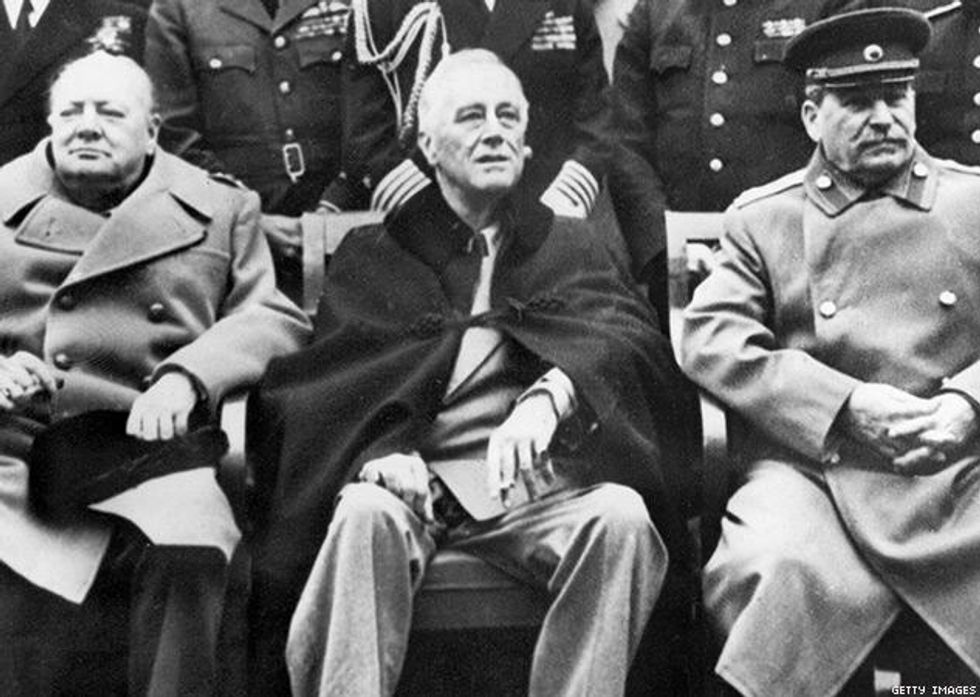 Franklin D. Roosevelt
Franklin D. Roosevelt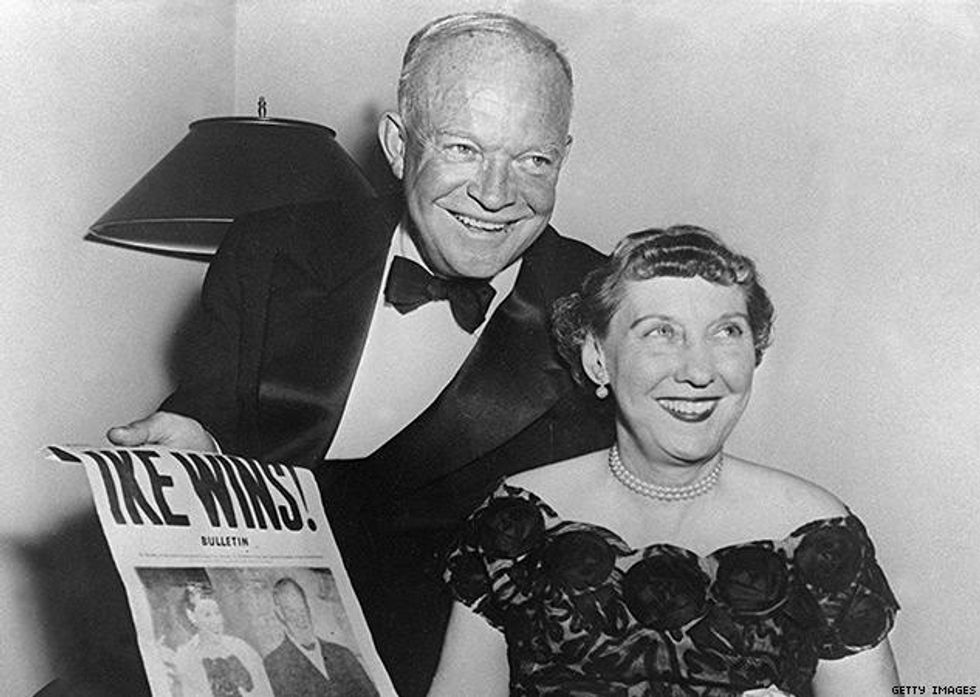 Dwight D. Eisenhower
Dwight D. Eisenhower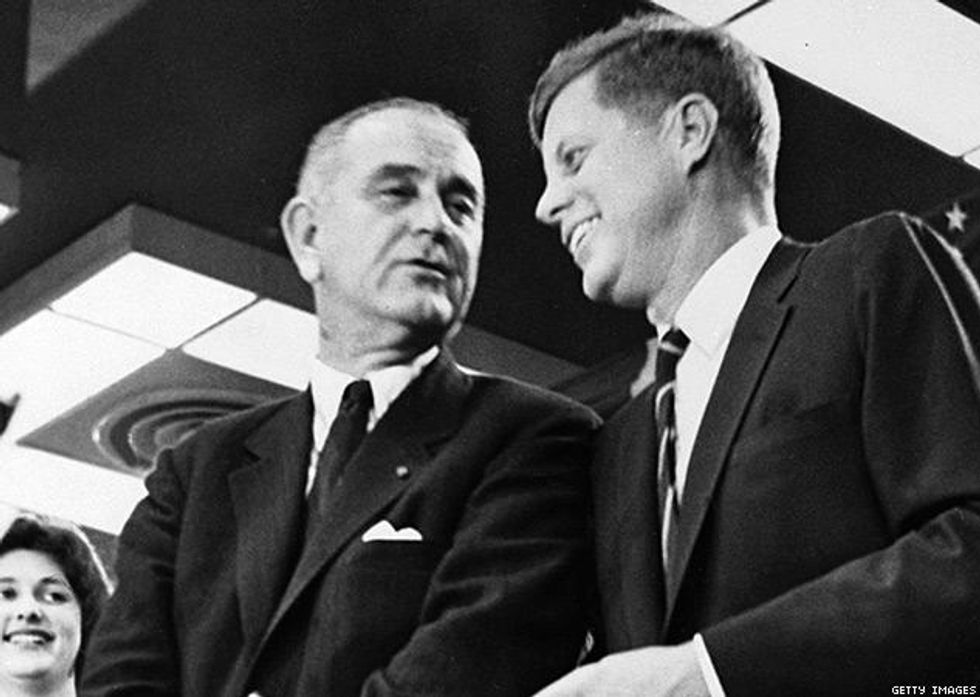 John F. Kennedy and Lyndon B. Johnson
John F. Kennedy and Lyndon B. Johnson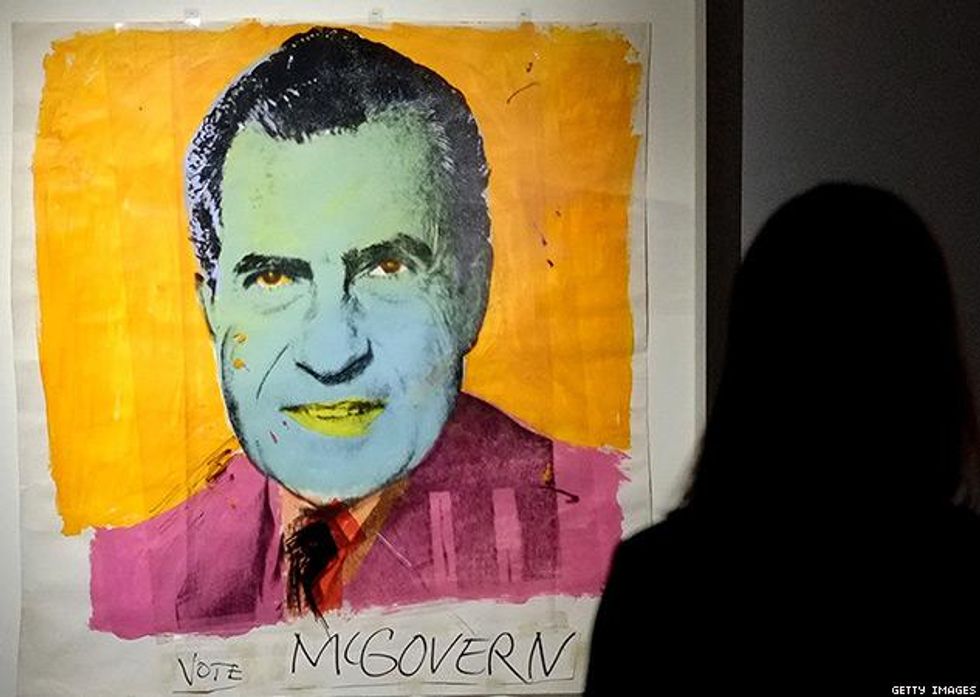 Richard M. Nixon
Richard M. Nixon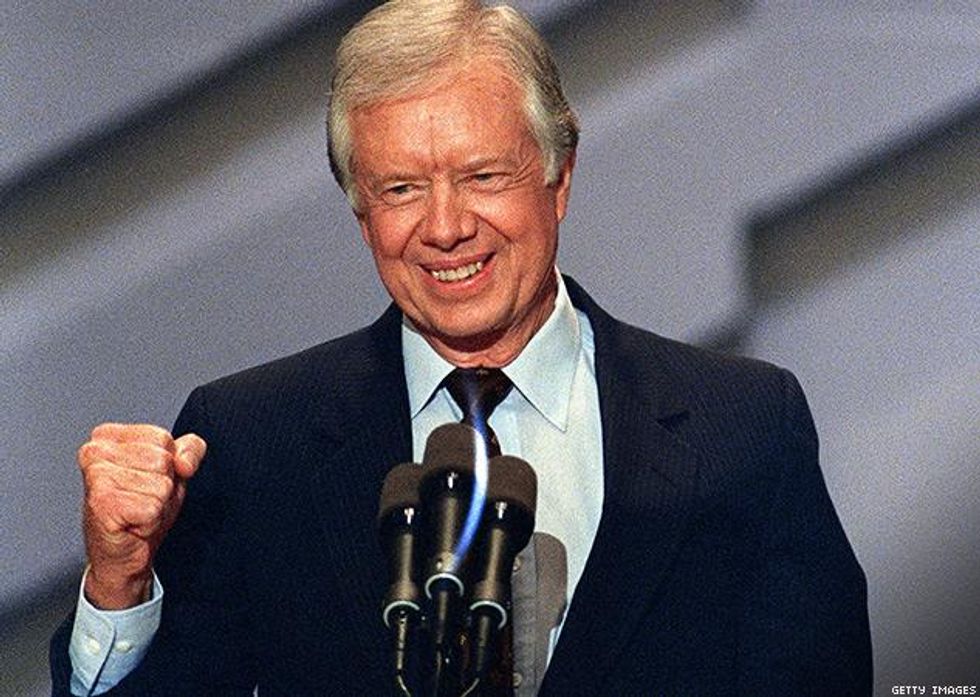 Jimmy Carter
Jimmy Carter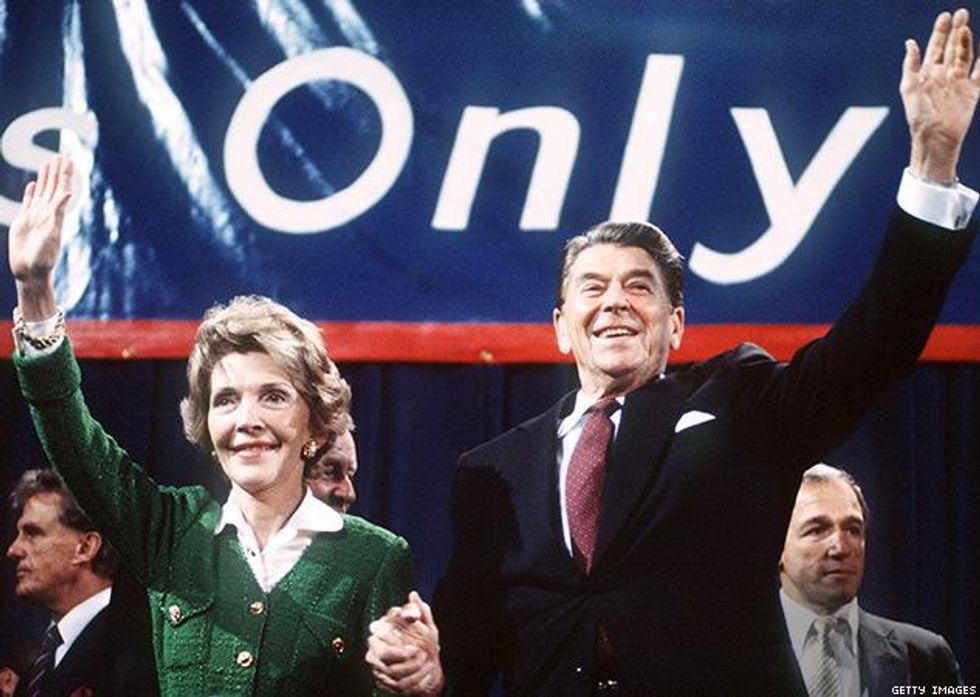 Ronald Reagan
Ronald Reagan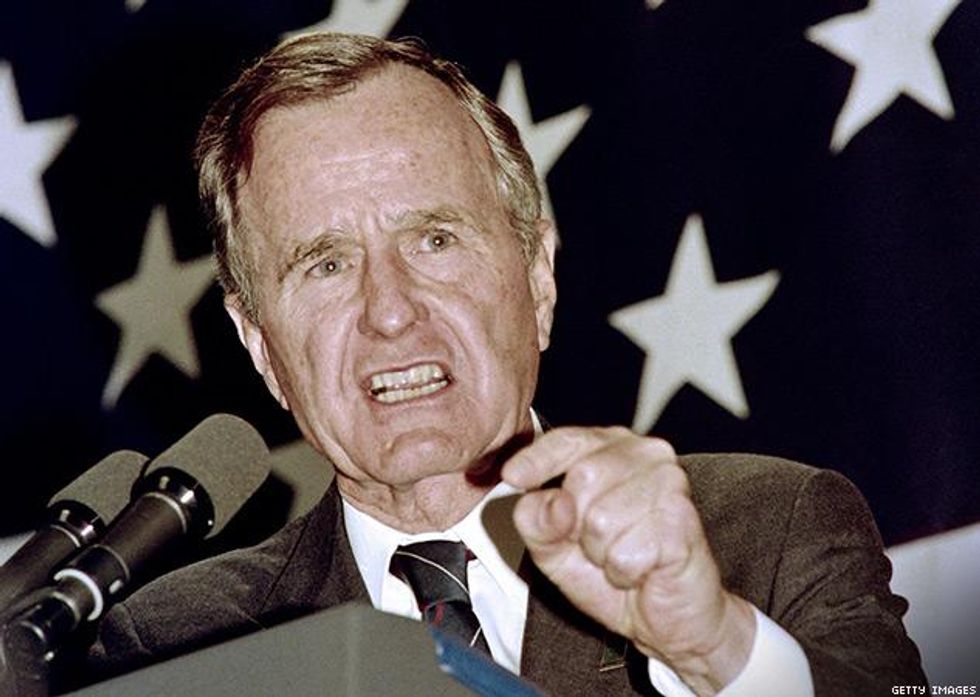 George H.W. Bush
George H.W. Bush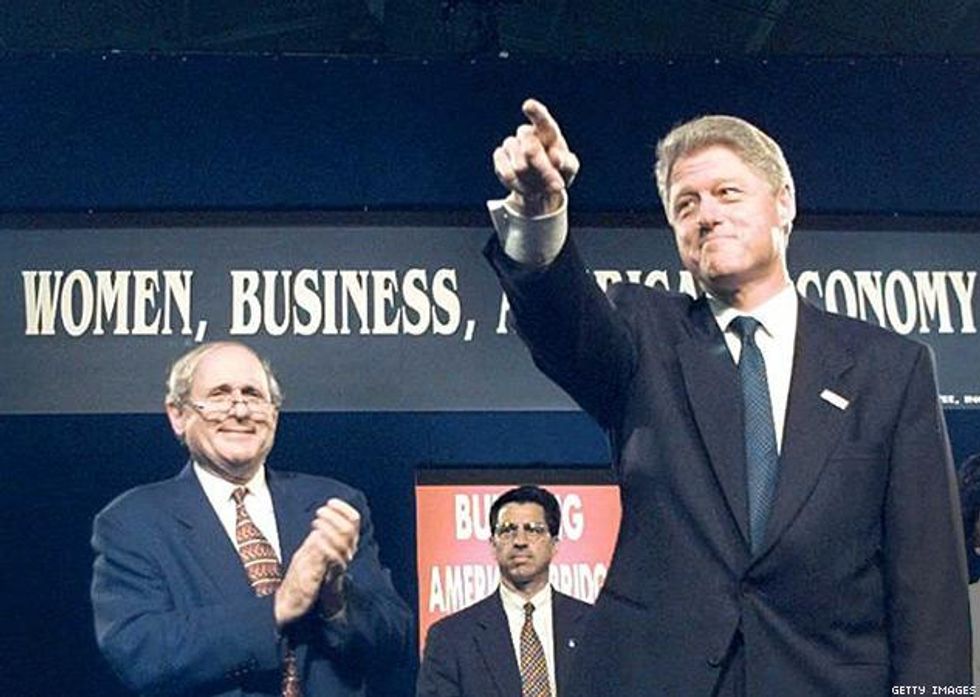 Bill Clinton
Bill Clinton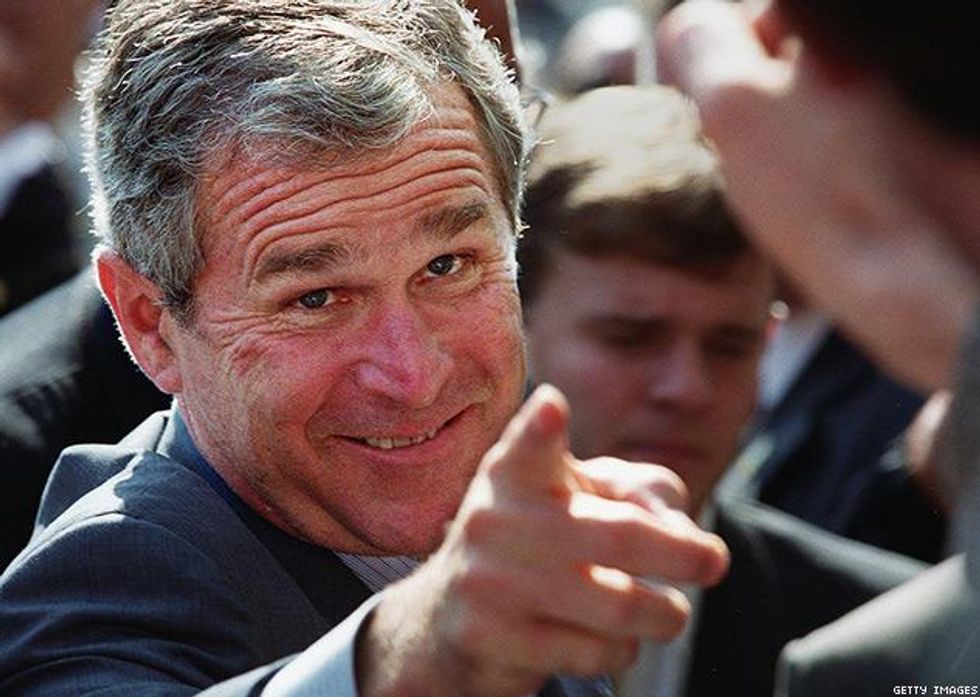 George W. Bush
George W. Bush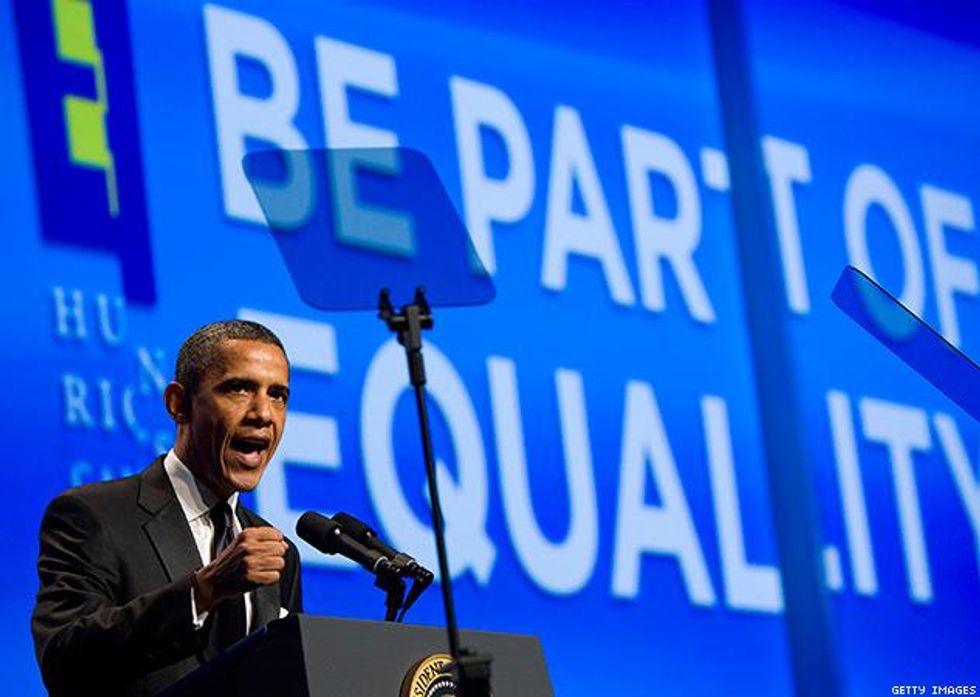 Barack Obama
Barack Obama






































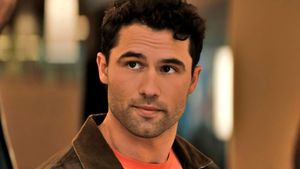










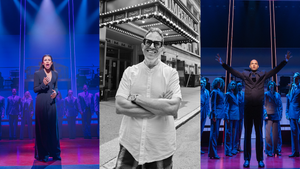













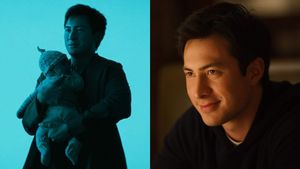

Charlie Kirk DID say stoning gay people was the 'perfect law' — and these other heinous quotes